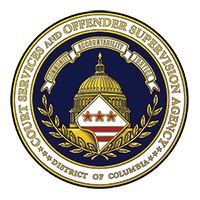After 27 years of substance abuse and living a life he described as “lost,” Anthony Hopkins found himself in police custody once again after avoiding his community supervision officer. With the support of many, including two CSOSA community supervision officers who worked diligently to keep him on the right path, Hopkins was able to turn his life around.
The challenges Hopkins faced were not unique to him. Eighty-three (83%) of those entering supervision in 2017 reported having a history of substance abuse. Half of CSOSA’s employable population is unemployed. A person is employable if they are not retired, disabled, suffering from a debilitating medical condition, receiving Supplemental Security Income, participating in a residential treatment or sanctions program, or participating in a school or training program. A little more than one out of every 10 individuals under CSOSA supervision had unstable housing in 2017. Those living in a homeless shelter, halfway house, transitional housing, hotel or motel, or who have no fixed address are considered to have unstable housing.
CSOSA’s community supervision officers use evidence-based strategies, such as cognitive behavioral interventions, to change the thinking, behavior, and attitudes of those under supervision. CSOSA partners with District and federal agencies, community-based organizations, and faith institutions to connect the justice-involved individuals under our supervision with resources to facilitate their success under supervision and in the community.
Watch the video to learn more about Anthony Hopkins’ journey and to find out how his life has changed.



